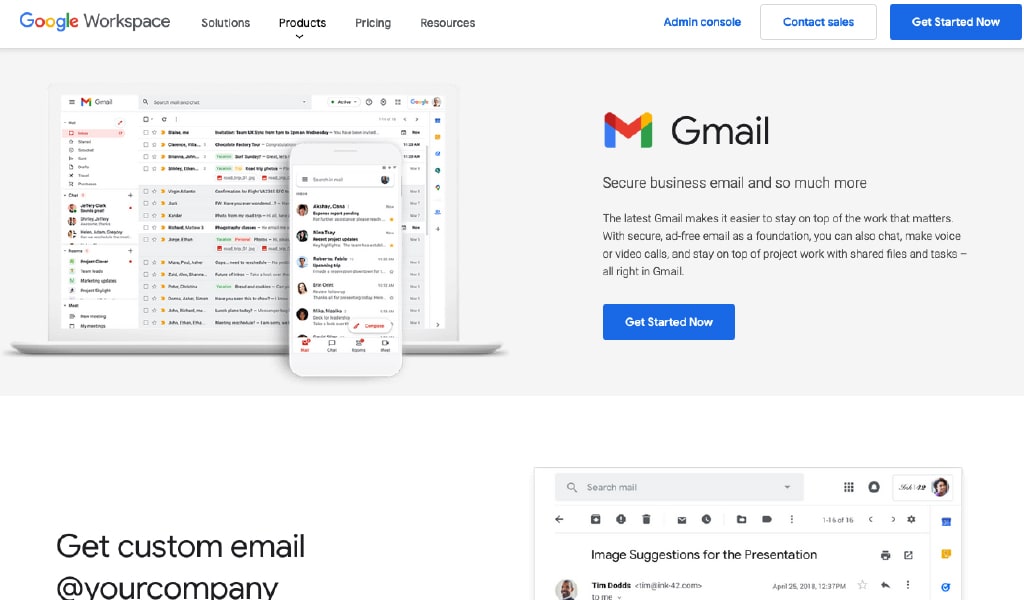Essential Tools for Running an Online Business in 2025
Running a business online isn’t a one-tool fits all kind of situation. In fact, depending on the type of business you run or the online presence you have will determine the types of online software that you need to accomplish your goals.

For many, it will mean finding ways for your customers to find and interact with you online, which is what this post is all about.
We’ve put together a list of essential tools you need in your business toolkit to make the most of your opportunities. It’s by no means an exhaustive list, but it’s a good starting point for those looking to start a business online to understand what’s needed.
Website Tools
If you’re running an online business, chances are you already have a domain, hosting and a website up and running there are exceptions of course, but many businesses rely on website traffic to drive sales.
If you’re still thinking about starting a business then you’re going to need a website. If you’ve got the budget you can always work with a development agency to get you up and running, else there are some good website builders like Wix and Weebly that even the non tech savvy among us can use, at a reasonable price.
Whether you’re writing a daddy blog or running an e-commerce site, your website needs to stand out. This is where picking the right type of Website Theme comes into play.
A website is your main point of contact for many and should showcase what your business does or the products you’re selling effectively. Clean, uncluttered design is key to engagement, usability, and an overall good user experience.
Then, you’re going to need to promote your business via other means than just hoping your knowledge of SEO and search engine tools can help you rank on Google. Search engines are fickle creatures—one minute rewarding your efforts only to change their algorithm and take it away again.
One word ‘diversify’, and don’t forget to promote your content.
- Easy to use interface
- Fast, reliable (100% up time) & secure servers
- Hosting: Shared, VPS, Wordpress, Cloud, Dedicated
Social Media Tools
If you’re not promoting your business on Social Media, you’re missing out on vital traffic and eyes on your business.
From Twitter to Facebook, to Instagram, to Pinterest, to TikTok, you’ll need to have a social media presence of some sort to help your business grow.
We’re not saying you need to sign up for all but utilize the one that’s best for your business.
Instagram and Pinterest are great visual platforms if you’re creating or selling goods. If your business is more business orientated, perhaps Facebook, Twitter, or LinkedIn are the right social media platforms for you.
We’ve put together a selection of the best social media management tools like MeetEdgar, that can help create, automate and schedule your posts.
SEO Tools
We touched on SEO (search engine optimization) a little earlier, and it’s going to be something that will help you improve the rankings of your website on search engines like Google and Bing.
At its simplest, you’ll need to make sure that you target the right keywords, get backlinks from other websites, and check out your competition to ensure you’re at least competing.
SEO isn’t for the faint of heart. Many SEO agencies are trying to sell their services, many of which are overpromising and under-delivering. If you’ve got the time to do it yourself or are hiring an in-house SEO person, then you’re going to need the right and best SEO tools for the job.
Tools and software that include the likes of SEMRush, Moz Pro, or Ahrefs to analyze your site and your competitors and find the gaps in the market you can target to improve your rankings and your traffic quantity and quality.
- Site audits to optimise your site
- Analyse competitors keywords & backlinks
- Explore content, keywords & track rankings
- Free learning materials & community support
Accounting Software
To run a business online successfully then, you’re going to need to keep track of the numbers, and what better way to do that than with some helpful accounting software.
Some of the best small business accounting software like FreshBooks will help you keep track of invoices, let you organise your expenses, upload receipts, and make sure that your books are in order.
You’ll be able to do tax calculations, keep an eye on your balance sheet, and often give your accountant access to make your and their lives easier for the end-of-year accounts.
Trust me when I say it’s best to keep everything for when the taxman inevitably comes calling—having kept everything up to date and in order will save you time and money.
Business Emails
If you’re running a business, then you’re going to need a professional email address for people to contact you and your email marketing campaigns. Yes, Yahoo and Gmail extensions might work for many, but having your own business domain ([email protected]) looks more professional.
Depending on your needs will depend on which type of email you set up. Of course, you’ll need to buy a domain name first to use that in the email address, but after that, it’s all down to what you need and how much you want to spend.

Gmail offers business email accounts letting you use their functionality but with your business extension for a reasonable fee. Costs can quickly add up when you have a few employees on the books.
Alternatively, your hosting provider might offer a good package price if you’re only small and starting out.
Whichever you choose, make sure it’s reliable, secure, and speedy cause you wouldn’t want to miss out on an important email from that long-lost uncle of yours who apparently owes you millions, would you?
CRM (Customer Relationship Management) Software
Alongside having your books in order, you’re going to want to keep your contacts and business relations in order too. This is where Customer Relationship Management software comes into play.
There are many benefits of CRMS, they can help you keep an eye on your sales funnel, manage appointments, keep track of deals, and who’s the main point of contact on each.
A good CRM will let you keep notes on meetings and filter through reports and contacts, saving you time from digging around in old notebooks or scraps of paper.
CRMs like HubSpot range in price and functionality, so it’s best to pick one that suits you but also one that can scale up if your business goes from startup to, small, to medium and beyond.
Check out our post on the best CRM software and find one that’s right for your business.
Online File Storage
Keeping your confidential files and information online is becoming increasingly more important.
Not only is it essential to keep your information and company documents safe, but also that of your clients, as any breaches could land you with some serious brand negativity and potential legal issues.
So picking the right file storage solution is key to a successful and secure business.
Cloud-based file storage is a good bet and will let you protect your information via encryption, save more due to larger drives, have backups so you don’t lose anything, and give you 24/7 access.
Many let you set up specific groups to share the right files with the right people at the right time. A few cloud-based file solutions include DropBox Professional and Microsoft OneDrive perfect for small businesses looking for a versatile online storage solution.
Conclusion
These are just a few of the essential business tools you’ll need to start and grow your online business.
But where you’ll truly succeed with your website, business, or brand is in picking the right software and tools, learning how to use them, and developing your skills. This helps you become immersed in what you’re doing, making the job of running your business and marketing it slightly more manageable.
Just remember to keep organized, keep learning, and you’ll save time now and in the future.






